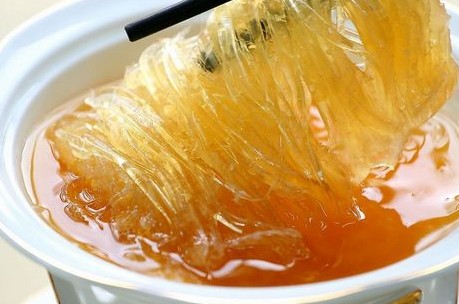(单词翻译:单击)
华尔街日报:由于中国年轻人环保意识的增强,以及中国政府的反腐措施,这几年中国鱼翅消费迅速下降.

The Wall Street Journal: China's consumption of shark fin soup is declining rapidly as young Chinese become more environmentally conscious and the government's anticorruption campaign discourages showy banquets and conspicuous consumption.
A study released this week by WildAid, a San Francisco-based civic group that's led a high-profile media campaign against the trade, found that sales among shark fin vendors in the southern city of Guangzhou declined 82% in the past two years, while wholesale prices fell 57% and retail prices dropped 47%.
Guangzhou is the hub of shark-fin processing in China, according to WildAid, which estimates that the Middle Kingdom accounts for 75% of shark-fin consumption world-wide.
While sharks have traditionally not engendered great sympathy among humans, they're important apex predators that help maintain the ocean's environmental balance. According to WildAid, many shark species have seen their numbers decline by as much as 90% in recent decades.
In recent decades, China's appetite for shark fin has grown rapidly, driven by growing wealth, fueling a global trade estimated at $500 million to $1 billion annually. That's attracted the interest of organized crime, seen in a 2003 gangland slaying of two Hong Kong businessmen, a Chinese national and a local in Fiji, blamed by detectives on a fight over shark-fin profits.
Rising demand has also led fishermen to toss sharks back alive after stripping them of their valuable fins, leaving them to sink and suffocate. Of up to 100 million sharks killed annually world-wide, studies estimate that between 26 million and 76 million are slayed for use in soup, which can sell for up to $2,000 a bowl.
WildAid also cites the impact of a Chinese media campaign it coordinated featuring basketball player Yao Ming and actor Jackie Chan condemning the consumption of shark fin and other wildlife products. Two dozen airlines and five hoteliers agreed to stop serving the dish, including Emirates and Singapore Airlines, Hilton Worldwide, Shangri-La Hotels and Ritz-Carleton.


